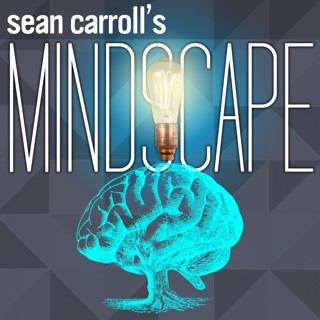
254 | William Egginton on Kant, Heisenberg, and Borges
It can be tempting, when first introduced to a deep concept of physics like Heisenberg's uncertainty principle, to draw grand philosophical conclusions about the impossibility of knowing anything prec...
23 Loka 20231h 6min

253 | David Deutsch on Science, Complexity, and Explanation
David Deutsch is one of the most creative scientific thinkers working today, who has as a goal to understand and explain the natural world as best we can. He was a pioneer in quantum computing, and ha...
16 Loka 20231h 42min

AMA | October 2023
Welcome to the October 2023 Ask Me Anything episode of Mindscape! These monthly excursions are funded by Patreon supporters (who are also the ones asking the questions). We take questions asked by Pat...
9 Loka 20232h 58min

252 | Hannah Ritchie on Keeping Hope for the Planet Alive
Our planet and its environment are in bad shape, in all sorts of ways. Those of us who want to improve the situation face a dilemma. On the one hand, we have to be forceful and clear-headed about how ...
2 Loka 20231h 15min

251 | Rosemary Braun on Uncovering Patterns in Biological Complexity
Biological organisms are paradigmatic emergent systems. That atoms of which they are made mindlessly obey the local laws of physics; even cells and organs do their individual jobs without explicitly u...
25 Syys 20231h 11min

250 | Brendan Nyhan on Navigating the Information Ecosystem
The modern world inundates us with both information and misinformation. What are the forces that conspire to make misinformation so prevalent? Can we combat the flow of misinformation, perhaps by lega...
18 Syys 202357min

249 | Peter Godfrey-Smith on Sentience and Octopus Minds
The study of cognition and sentience would be greatly abetted by the discovery of intelligent alien beings, who presumably developed independently of life here on Earth. But we do have more than one d...
11 Syys 20231h 28min

AMA | September 2023
Welcome to the September 2023 Ask Me Anything episode of Mindscape! These monthly excursions are funded by Patreon supporters (who are also the ones asking the questions). We take questions asked by P...
4 Syys 20234h 3min














